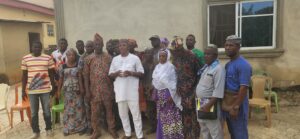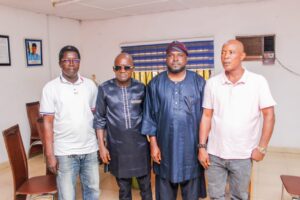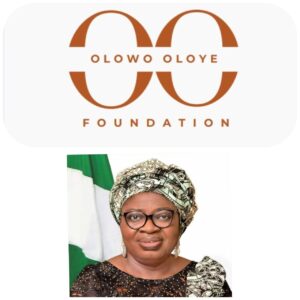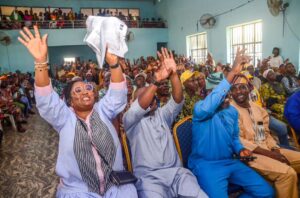Nigeria No Longer Practicing Genuine Democracy — Atiku, Obi
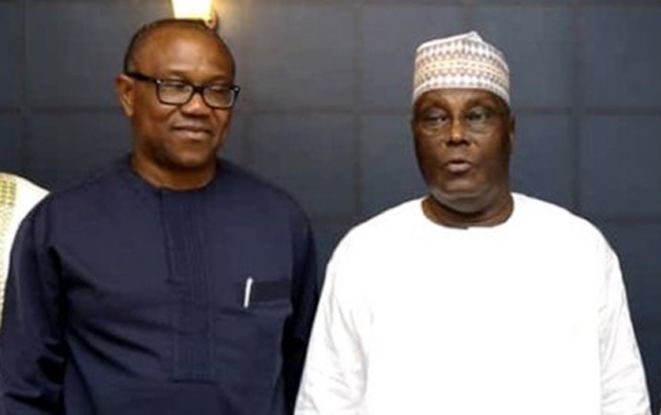
Nigeria No Longer Practicing Genuine Democracy — Atiku, Obi

Prominent opposition leaders, former Vice President Atiku Abubakar and Labour Party’s 2023 presidential candidate, Mr. Peter Obi, have accused President Bola Tinubu’s administration of undermining the core ideals of June 12.
They asserted that under the current government, Nigeria can no longer be regarded as a functioning democracy.
In separate Democracy Day statements on Thursday, both leaders painted a grim picture of Nigeria’s political and economic landscape, accusing the Federal Government of dismantling hard-won democratic gains, suppressing dissent, manipulating public perception, and governing with authoritarian intent.
Atiku described the current administration as “the lowest ebb in our democratic journey,” saying that the spirit and sacrifices of June 12 were being betrayed by what he called a creeping one-party dictatorship.
He said Nigerians were not experiencing true governance, but rather a form of domination.
He lamented that the democratic progress which began in 1999 was now gradually being undone.
“Thirty-two years ago, Nigeria stood on the cusp of greatness. The winds of democratic change were sweeping through Africa, and all eyes turned to our nation with hope, hope that Nigeria would rise as a beacon of liberty, justice, and self-determination
I was privileged to be an active participant in that defining chapter, which culminated in a historic election that captured the imagination of the world and reshaped our political destiny. It was a moment of great promise and great sacrifice.
“The political class made painful compromises, but it was the Nigerian people who bore the heaviest burden.
“They yearned for a new democratic order, and many paid dearly for it.
“I, too, made my fair share of sacrifices, most notably setting aside my own presidential ambition in deference to the late Chief MKO Abiola, a gesture made in faith and fidelity to a higher national cause.”
He lamented those who died in the pursuit of enthroning democracy in the country.
“But others gave far more. The late Alhaja Kudirat Abiola, Tafida Shehu Musa Yar’Adua, and Alfred Rewane; these brave souls gave their lives in pursuit of a freer Nigeria. Their memories are etched into our national conscience and must never be forgotten.
“The gains of June 12 were hard-won. But sadly, the democratic promise that blossomed in 1999 is being steadily dismantled before our very eyes.”
The former Vice President accused the ruling All Progressives Congress and its Federal Government of governing with a clear aim to dominate, suppress, and silence dissent.
He stated, “Today, Nigeria teeters on the edge of a dangerous precipice—a creeping one-party dictatorship is replacing the democratic order we bled for. Those who laid down their lives did not do so for Nigerians to groan under the yoke of authoritarianism and economic suffocation.”
He lamented, “What we are witnessing is not governance, it is conquest. This government represents the lowest ebb in our democratic journey.”
Atiku stated that as long as oppression persisted, June 12 would endure, not merely as a memory, but as a continuing movement.
Obi, in a speech commemorating Democracy Day on Thursday, said the core elements of democracy were absent in the current system of governance in Nigeria.
“Most unfortunately in our present state, our dear country Nigeria cannot be classified as a democratic country.
“Democracy is said to be a government of the people, by the people, and for the people. Yet, none of these three measures exist in our democracy today,” Obi said.
The former LP presidential candidate criticised the electoral process, noting that rules and requirements for participation were routinely violated.
People who are not qualified and ought to be disqualified are now holding public offices,” he said.
Reflecting on the symbolic significance of June 12 in Nigeria’s democratic struggle, Obi expressed concern that the country, under the current administration, had seen a broad erosion of democratic values in just two years.
“It is deeply troubling that under the present administration, in a short span of two years, our nation has witnessed a broad erosion of democratic principles,” he said.
He highlighted a corresponding deterioration in security, economic stability, and social services, including education and healthcare.
“We have traversed from rigged elections to collapsing social service, from soaring poverty to rising corruption, and from a seemingly stable economy to a parallel economy,” Obi stated.
He accused the Federal Government of manipulating public perception rather than addressing the challenges facing the nation.
“Rather than show genuine accountability and measure good progress, [the government] focuses on manipulating the narratives, gaslighting the public, shifting blame, and weaponising governance,” he said.
The former Anambra State governor also cited economic statistics to back his claims.
According to him, Nigeria’s Gross Domestic Product fell from $364bn in May 2023 to $188bn, while per capita income dropped from $1,640 to $835.
“Nigerians living in poverty have increased from 38.9 per cent to 54 per cent. Within this period, 129 million Nigerians now live below the poverty line,” he added.
He noted that a World Bank report showed that 75 per cent of Nigerians in rural areas now lived below the poverty line.
Obi also decried the state of education and healthcare.
“Today, we have 18.3 million children out of school, the highest in the world. Our children are now being taught science without science labs and computers without computers. They are now taking exams in the dark with candles,” he said.
On the state of healthcare, he cited data from the National Primary Health Care Development Agency, which revealed that fewer than 20 percent of the over 30,000 primary healthcare centres nationwide are operational.
He concluded that the country is experiencing a rapid decline across multiple sectors, warning that the rule of law is nearly absent and that governance is increasingly failing to address the fundamental needs of the population.

